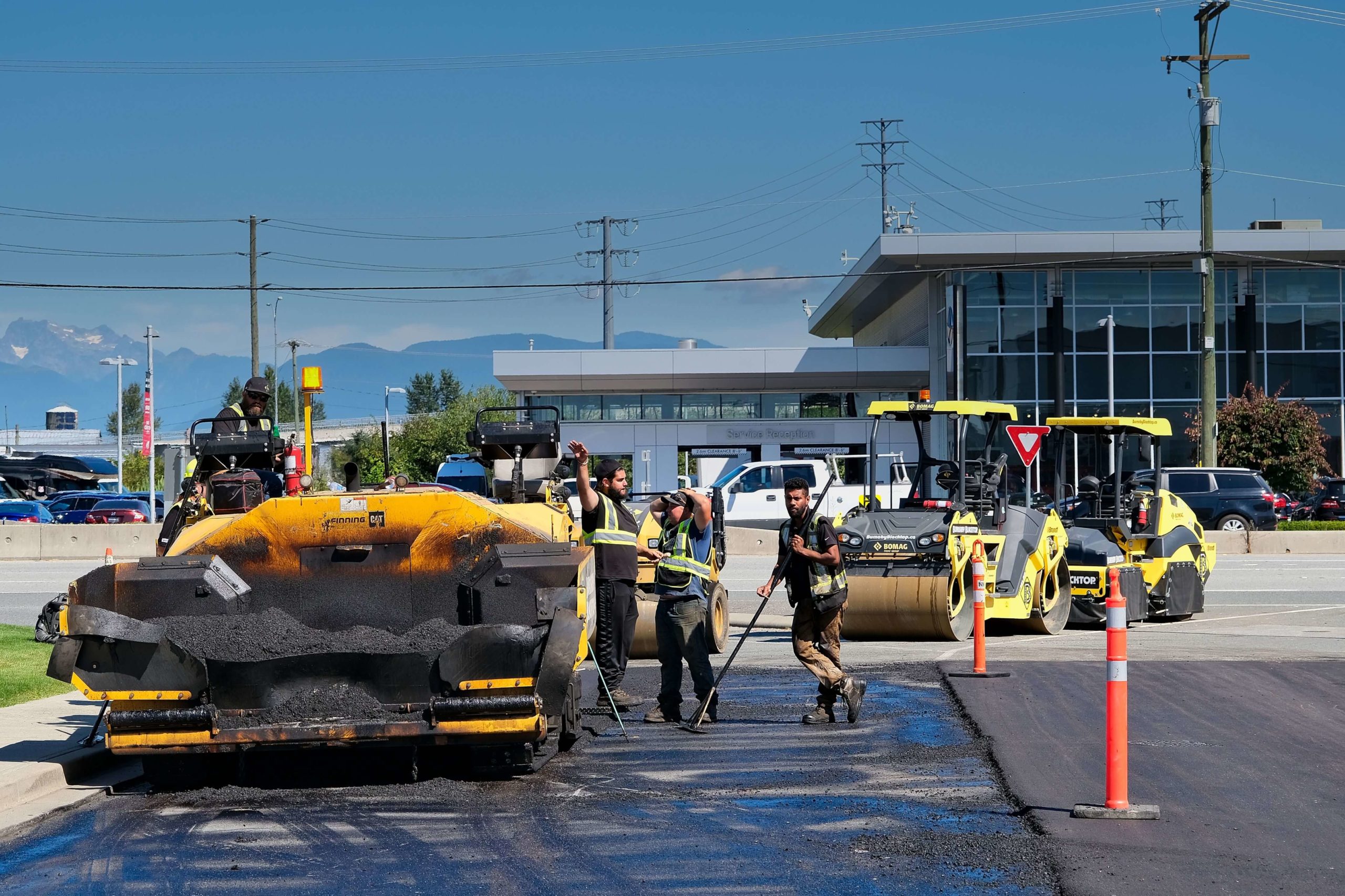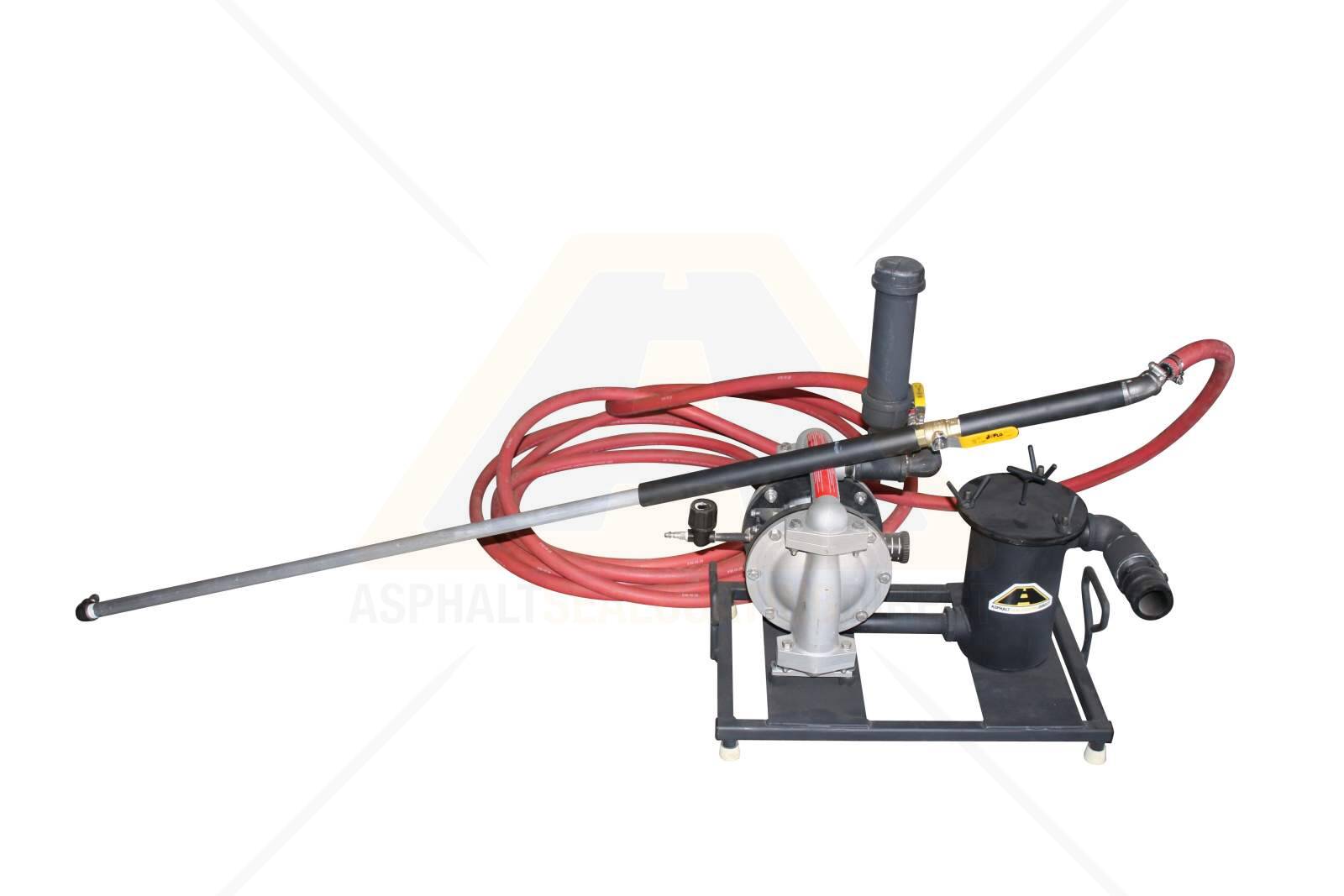Grasping Angled Parking: How Asphalt Sealing Improves Business Whole Lots
Grasping Angled Parking: How Asphalt Sealing Improves Business Whole Lots
Blog Article
Warm Mix Asphalt: A Sustainable Solution for Pavement
Warm Mix Asphalt (HMA) has arised as a leading lasting choice for pavement services, offering a myriad of ecological benefits and innovative innovations. As the need for environment-friendly building and construction techniques grows, exploring the subtleties of HMA's sustainability can give important insights into the future of sidewalk options.
Environmental Advantages of Warm Mix Asphalt

Furthermore, Warm Mix Asphalt helps to minimize urban warmth island impacts. Its dark shade takes in sunshine, minimizing the amount of heat mirrored back right into the atmosphere contrasted to lighter-colored sidewalks. This can reduce ambient temperature levels in metropolitan locations, decreasing the need for a/c and inevitably minimizing energy consumption.
In enhancement, Warm Mix Asphalt contributes to boosted stormwater monitoring. Its permeable nature allows water to penetrate the pavement and reenergize groundwater materials, minimizing drainage and the risk of flooding. These environmental benefits make Warm Mix Asphalt a lasting option for paving roads and highways.
Energy Effectiveness in HMA Manufacturing
Is power efficiency a vital variable in the manufacturing of Warm Mix Asphalt (HMA)? Energy plays a considerable role in the manufacturing of HMA, impacting both cost and ecological sustainability. One essential aspect of power performance in HMA manufacturing is the usage of warm mix asphalt (WMA) technologies.
Furthermore, innovations in plant modern technologies have actually led to more energy-efficient HMA production processes. By optimizing power usage in HMA production, the market can decrease its carbon footprint while preserving premium sidewalk materials.
Recyclability of Warm Mix Asphalt
The recyclability of Warm Mix Asphalt (HMA) is an essential aspect of its sustainability and long-lasting ecological impact. HMA is one of one of the most recycled materials in the USA, with over 100 million heaps of reclaimed asphalt pavement (RAP) being recycled every year in brand-new pavement building. Reusing HMA supplies several environmental benefits, such as decreasing the need for virgin products, lowering energy usage during manufacturing, and reducing the quantity of waste sent to landfills.
The process of reusing HMA includes crushing the existing sidewalk, crushing it into smaller pieces, and mixing browse around this web-site it with brand-new accumulation and asphalt binder to develop a recycled mix. Overall, the recyclability of HMA plays a significant role in advertising lasting practices within the pavement sector.

Long-Term Efficiency of HMA
Asphalt sidewalks demonstrate toughness and resilience over an extended duration, showing the long-term performance of Hot Mix Asphalt (HMA) Furthermore, advancements in HMA technology, such as the use of polymer-modified binders and cozy mix asphalt, have additionally improved the longevity and longevity of HMA pavements. By focusing on high quality building and maintenance techniques, HMA continues to show itself as a lasting and affordable remedy for durable pavement infrastructure.

HMA: Resilience and Sustainability
Demonstrating both durability and sustainability, Hot Mix Asphalt (HMA) has actually become a foundation in the construction of long-lasting sidewalk infrastructures - hot mix asphalt. HMA's toughness originates from its capacity to stand up to hefty loads, rough weather condition conditions, and high traffic volumes, making it a reliable option for roadways, freeways, and airport paths. The composition of HMA, which generally consists of accumulations, binder, and filler, plays an important role in enhancing its long life and resistance to tear and wear
In addition, HMA's sustainability depends on its recyclability and energy-efficient manufacturing procedure. The ability to recycle reclaimed asphalt sidewalk (RAP) in new HMA blends reduces the demand for virgin materials and decreases the environmental effect of sidewalk construction and upkeep. Furthermore, the power performance of producing HMA exists in its lower mixing temperature levels contrasted to various other pavement materials, causing lowered energy consumption and greenhouse gas discharges.
Verdict
In verdict, hot mix asphalt (HMA) uses a sustainable service for pavement with its ecologically friendly characteristics. HMA's recyclability, energy effectiveness in production, and lasting resilience make it an environment-friendly option for road building and construction.
HMA is one of the most recycled materials in the United States, with over 100 million loads of reclaimed asphalt pavement (RAP) being recycled every year in brand-new pavement building and construction.The procedure of reusing HMA includes crushing the existing sidewalk, squashing it into smaller sized pieces, and mixing it with brand-new aggregate and asphalt binder to produce a recycled mix.Asphalt pavements show sturdiness and strength over an extended duration, mirroring the long-term efficiency of Hot Mix Asphalt (HMA) In addition, advancements in HMA technology, such as the usage of polymer-modified binders and look at this site warm mix asphalt, have further improved the resilience and long life of HMA pavements. The capacity to reuse redeemed asphalt pavement (RAP) in brand-new HMA mixtures minimizes the demand for virgin materials and check my site decreases the environmental influence of pavement building and upkeep.
Report this page